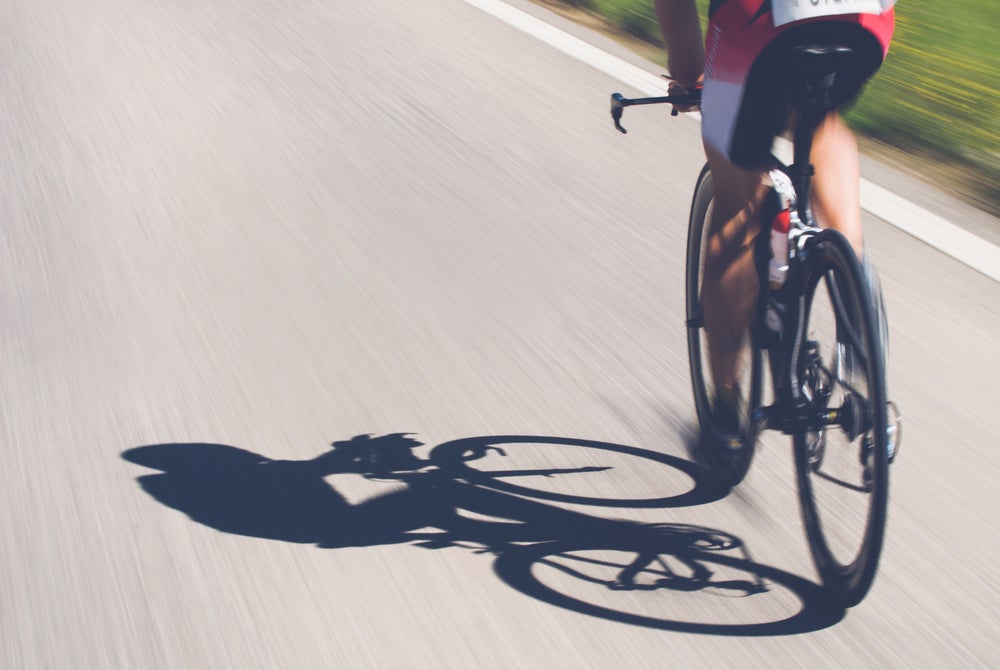How Do I Fuel for Triathlon with Celiac Disease?

This athlete suffers from Celiac disease, resulting in low energy, bonking, and dehydration while training for tri.
The Athlete
Kai Sill
Mankato, Minnesota
32 years old
6’3’’, 164 lbs
Years in the sport: 4
Occupation: High School science teacher, husband to Emma, and soon-to-be dad (July due date)
Weekly training hours: Spring: 12-14; Summer: 16, peaking at 20
The Problem: Kai has Celiac disease. (Read on for more on the autoimmune disorder affecting about 1 percent of people in the U.S.). He suffered from low energy, bonking, and dehydration while training for tri. He was struggling to eat “enough” in his daily diet, and he was concerned about GI issues and meeting the nutritional demands for half-and full-Ironman prep.
What Is Celiac Disease?
Gluten is a protein found in wheat. Unlike an intolerance or aversion to gluten, celiac is a serious autoimmune disorder that causes the immune system to damage the lining of the small intestines when gluten is consumed. Symptoms include digestive problems, extreme joint pain, fatigue, skin rash, malnutrition, nausea, and headaches. A blood test is needed to screen for celiac disease antibodies, followed by a biopsy of the small intestines to con rm the diagnosis. Because many convenient carbohydrates con- tain gluten, gluten-free dieters often struggle to meet their daily calorie and carb needs, to the detriment of their athletic performance. Athletes nixing gluten like Kai will benefit from consulting with a board-certified sport dietitian to make sure they’re eating enough—and getting enough proper nutrients—to support their training.
Calculating Kai’s Needs
To show Kai how much energy his body required on a daily basis to support Ironman training, I estimated his energy intake while accounting for ve pounds of necessary weight gain, as I did not want Kai losing any weight in his Ironman journey. Too low body fat can compromise immunity, delay recovery, drop testosterone levels, increase risk for stress fractures, and reduce strength.
Past nutrient intake
Caloric intake: ~1800-2200 calories/day
Carbohydrate intake: ~200 – 280g
Protein intake: ~80 – 120g
Fat intake: ~50 – 65g
Kai’s diet was mostly comprised of rice cakes, pea- nut butter, oatmeal, fruit, and a variety of animal protein (e.g., deli meat, eggs, etc.) with the majori- ty of his calories being consumed after dinner.
Recommended nutrient intake:
Caloric intake: ~3500-4000 calories/day
Carbohydrate intake: ~390g – 624g
Protein intake: ~117g – 140g
Fat intake: 78g
RELATED RECIPE: Gluten-Free Chocolate Chip Cookies
Finding His Fuel
Given his history of GI issues, it’s not surprising that Kai struggled to eat “enough” throughout the day. Because most gluten-free foods are heavily processed, low in fiber, and not well-fortified, educating Kai on his best go-to, carbohydrate-rich, gluten-free foods made it easy to meet his caloric needs—especially on high-volume training days. Kai replaced his rice-cake snacks with fruit, yogurt, and homemade muesli, and he incorporated more gluten-free grains and starches, like rice, oats, pota- toes, and popcorn, into his diet.
The Test
With a few months of hard work and dietary tweaking, Kai arrived to his races feeling strong, fit, and healthy. He completed his first full-distance Ironman without GI issues. Kai’s race-day fueling plan, below, kept his body fueled and hydrated for all 140.6 miles.
Pre-race: Oatmeal with milk, peanut butter, and honey
Bike: ~280 calories per hour from liquid calories (28 ounces) and bites of solid food (Honey Stinger waffles) as needed
Run: 2 x 10-ounce flasks with 100 calories in each flask and energy chews as needed (he refilled flasks at the special needs station)
The Moral
Inadequate energy intake relative to energy expenditure is common among endurance triathletes for a variety of reasons. While some athletes intentionally restrict food for body composition goals, Kai was unaware how his restrictive diet was sabotaging his health and performance. For Kai, not eating enough was preventing him from gaining the endurance, resilience, and strength that was needed to tackle Ironman training.
Quick Checklist of Celiac-Friendly, Healthy Real Food Carbs
Fruit
Yogurt
Rice
Oats
Potatoes
Popcorn
Dairy
Beans
Lentils
Corn
Tapioca
GF Whole Grains
Marni Sumbal is a board certified sport dietitian and 12x Ironman finisher. Find her at Trimarnicoach.com.